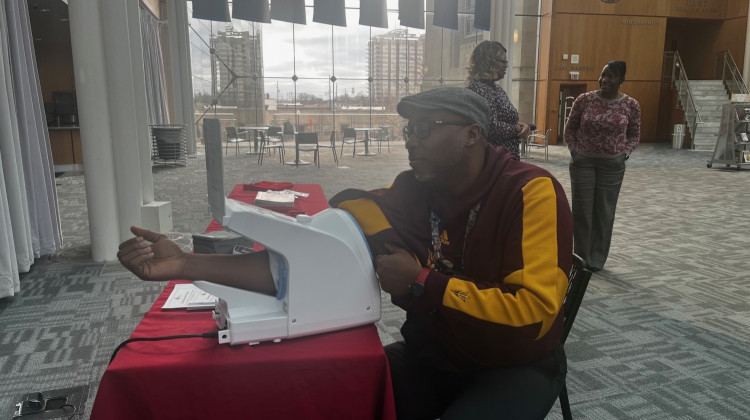More money is being invested in a project to drive down the rate of diabetes in three Indianapolis communities. An additional $5 million will go towards improving health equity through the Diabetes Impact Project, or DIP IN.
The public/private partnership was announced in 2018 with a $7 million investment from Eli Lilly and Company. The initiative was created following a study that examined life expectancy disparities in Indianapolis neighborhoods.
Since then the data has only worsened, residents in the three predominantly Black and Brown communities can expect to live 17 years less than residents 17 miles north.
Eli Lilly Director of Global Health Equity Partnerships Courtney Roberts said the pandemic has shown how important it is to double down on efforts.
“We don’t yet know the impact of COVID-19 on life expectancy in these neighborhoods but it’s likely to widen given what we know about the virus,” Roberts said.
People with underlying medical conditions, including diabetes, are more susceptible to COVID-19.
The additional funding will extend the project to eight years.
“This extended period of time that we’ve committed to this I think really recognizes that changing the health of communities doesn’t happen overnight,” Roberts said.
Led by resident voices, local health workers help identify ways to improve systemic societal barriers including healthy food access, safe recreation and stress.
The first three years of the project have been focused on supporting people who are living with diabetes and those at risk for developing diabetes.
Patrice Duckett-Brown, executive director of Fay Biccard Glick Neighborhood Center at Crooked Creek and a resident on one of the three local steering committees for DIP-IN, commented on the added support in a written statement.
"This grant expansion focuses on prevention from an equity lens,” Duckett-Brown said. “The new grant provides our community with additional support but an abundance of leverage to change how we view our own health and address long-term barriers that narrate health disparities within our community."
DIP IN partners include Eskenazi Health, Local Initiatives Support Corp., Marion County Public Health Department, the Polis Center at IUPUI, Alliance for Northeast Unification, Christamore House, Flanner House and the Indianapolis Neighborhood Resource Center.
Contact WFYI city government and policy reporter Jill Sheridan at jsheridan@wfyi.org. Follow on Twitter: @JillASheridan.
 DONATE
DONATE









 Support WFYI. We can't do it without you.
Support WFYI. We can't do it without you.